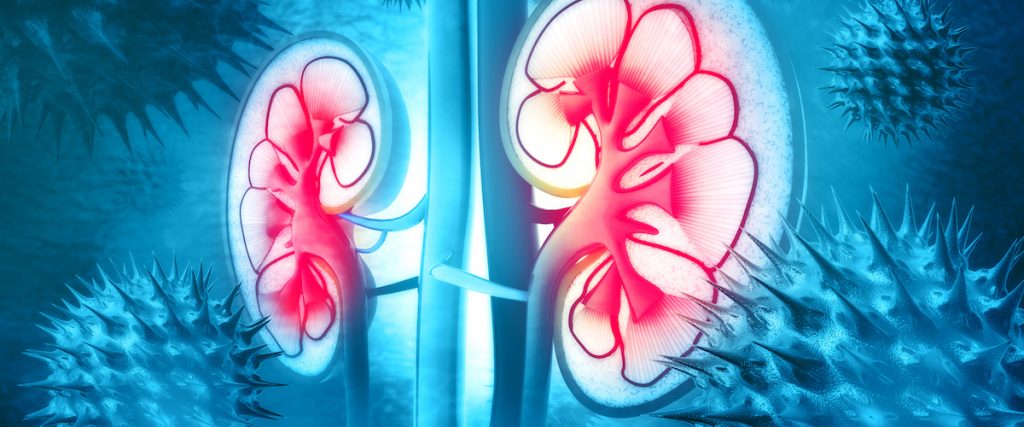
A Discovery That May Halt Kidney Disease Progression | Fresenius Medical Care
Researchers recently discovered a new compound that prevented the destruction of kidney cells and restored kidney function in lab experiments, potentially unlocking better therapies to treat the millions of people suffering from certain forms of kidney disease.
The research, conducted by a team from the Broad Institute, Brigham and Women’s Hospital and Harvard Medical School, and recently published in the journal Science, began with the examination of a rare genetic type of kidney disease. Researchers used animal models to explore the different genes and proteins involved in the destruction of kidney cells in their search for the new compound.
“Progressive kidney diseases often result in the destruction of the blood filtering structures known as the glomerulus, and so the more we can understand this process at the molecular level, the better chance we have to discover new therapies,” said Dr. Frank Maddux, Fresenius Medical Care’s Chief Medical Officer. “We certainly hope that this research will one day lead to new medicines that can address the unique circumstances of individual patients.”
Kidney damage is often characterized by the loss of proper function of specific filtration cells called podocytes. These structures filter out toxins from the blood, while helping retain essential proteins in the blood of the patient. As podocyte cell functions are destroyed, proteins from the blood spill into the urine.
Certain kidney diseases activate a protein, called Rac1, which in turn produces a different protein, called TRPC5, in a damaging feedback loop. The researchers were able to design and test various compounds to find one that could actually interrupt this process.
The research team discovered that a small molecule, named AC1903, succeeded in protecting the kidney’s filtration cells using rat models. According to the study’s authors, even when the animals began treatment at advanced stages of the disease, AC1903 was able to prevent further loss of filtration units and restore kidney function.
In the Broad Institute’s own announcement about this discovery, the project’s senior author, Anna Greka, expressed enthusiasm for the results saying, “Even after we see this rip-roaring, terrible disease that just wreaks havoc on the kidneys, we were able to prevent further damage in these rat models. Of course, we now need to test TRPC5 inhibitors in clinical studies in patients, but the results are very exciting.”
It’s a breakthrough that Fresenius Medical Care will be following closely in our mutual goal of providing the best therapies possible for the millions of patients with kidney disease.
“While these studies still have a long way to go to determine potential effectiveness in human patients, this discovery is an important clue into how the disease operates at the molecular level,” said Dr. Maddux. “It offers hope for the development of more precise diagnoses and precision therapies in the future.”



